Everyone in Stick is going through it.
Seven episodes into its run, AppleTV+’s latest entry into funny, messy, heartwarming dramedies, viewers have learned that while Pryce Cahill (Owen Wilson) is dragging around the series’s most intensely sad backstory, everyone else on Stick’s road trip through American golf tournaments is scarred by grief, too.
Pryce’s son Jet died over a decade ago, but he’s barely even processed that tragedy. His former caddy and best friend Mitts (Marc Maron) is driving this motley crew around in a super-sized luxury RV that doubles as a shrine to his late wife Francine; and Pryce’s mentee, the teenage golf prodigy Santi (Peter Dager) and his mom Elena (Mariana Treviño) are still processing the fallout from Elena’s divorce from Santi’s dad.
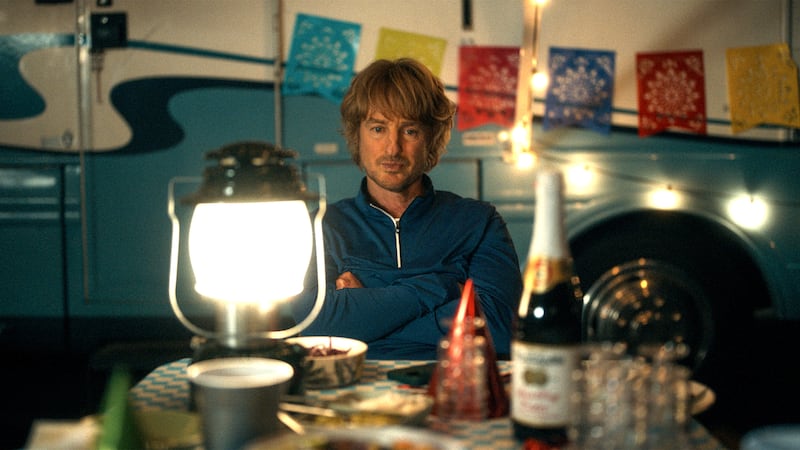
Across several conversations with The Daily Beast’s Obsessed, four cast members and series creator and executive producer Jason Keller all reflected on the universality of grief and the specific aspects of golf that make it such a powerful tool for dealing with it.
Keller’s perspective on grief undergirds much of Stick’s poignancy, as well as its major conflicts. Keller describes grief as an entirely egalitarian experience: “It doesn’t matter who you are, where you are, it’s just going to happen.” That’s hardly a new insight, but over the decades, Keller has found himself digging deeper and finding the American approach to portraying grief sorely lacking. It’s life-changing, and yet “we run away from that stuff so fast, and it’s not good for us. We’ve got to look at grief straight in the eye, feel it, learn from it, and then move on.”
Accordingly, the biggest problem in Pryce’s life isn’t so much the tragic death of his four year-old son, but his refusal to face that loss and feel it so he can figure out who he is on the other side of it. One devastating loss leads to another for him—a career-ending meltdown during a nationally televised golf tournament, and later, the dissolution of his marriage to Amber-Linn (Judy Greer)—culminating in his living in squalor at his and Amber-Linn’s formerly shared home, barely keeping the lights on by working at a local sporting goods store.
In spite of their divorce, Amber-Linn and Pryce are still very close. The grace Amber-Linn is able to extend to her ex-husband makes their ongoing relationship possible, Greer says. Pryce’s inability to mourn Jet with his wife compounds Amber-Linn’s loss, because as he struggles and stays stuck, Greer adds, “she loses her best friend and her partner.” But even when she concludes that Pryce wasn’t going to be able to walk that road with her, Amber-Linn’s compassion makes it possible for her to “forgive, move on, want the best for and support him.”
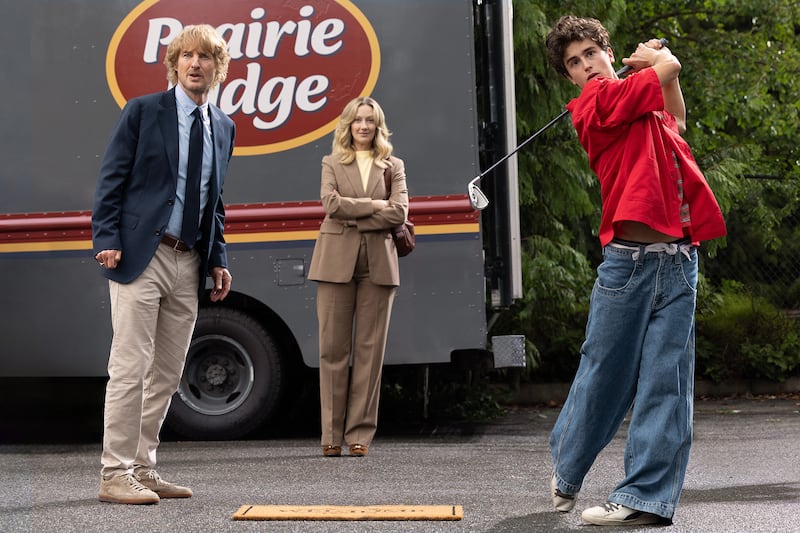
The series’s seventh episode, “Dreams Never Remembered,” opens with an extended dream sequence following Pryce as he imagines major milestones that he and Amber-Linn never got to experience with Jet. In nine devastating but never overplayed minutes, we see them discussing the minutiae of dinosaurs, giddily observing their boy’s first crush, scolding him about his first (terrible) tattoo and how loud he plays his music—even Jet’s departure for college as he looks forward to an exciting new phase of life. Do not watch this scene without a massive supply of Kleenex at the ready.
The consistent warmth between Amber-Linn and Pryce and all of the genuine goodness she provides in real life—not only in dreams—would veer too close to saccharine if it weren’t balanced out by the sweet-tart chemistry Greer and Wilson share. Their scenes sit firmly in ratatat, screwball comedy territory, with Pryce talking at top speed and Amber-Linn heroically getting a sentence or two in edgewise to playfully bring all of his hot air back down to Earth.
Greer was nervous about working with Wilson at first, fearing that having been a fan of his work as an actor and writer for so long, she might be too starstruck to build the collaborative rapport they needed on screen. Fortunately, she “was very relieved to show up for work and have it be so easy with” her costar.
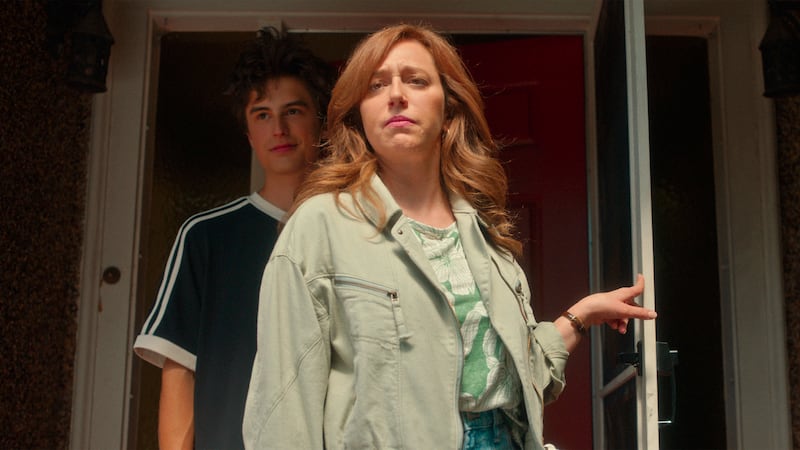
Mariana Treviño was similarly impressed with her closest colleague on the show, Peter Dager. The two actors portray another of Stick’s essential character pairs, mother and son Elena and Santi. Treviño, who has enjoyed a long career on stage and TV in Mexico, arrived on set quite flustered, having lost and replaced both her passport and phone shortly before. No matter. Dager immediately pulled into an embrace, prompting Treviño’s first thought that “there’s a bridge here, it’s happening instantly” between the two of them, a quality that’s vivid on screen from the season premiere.
The actors talk over but never at each other, shifting smoothly between English and Spanish in a way so fluidly that it often seems as though the two native Spanish speakers had ad libbed some of their scenes.
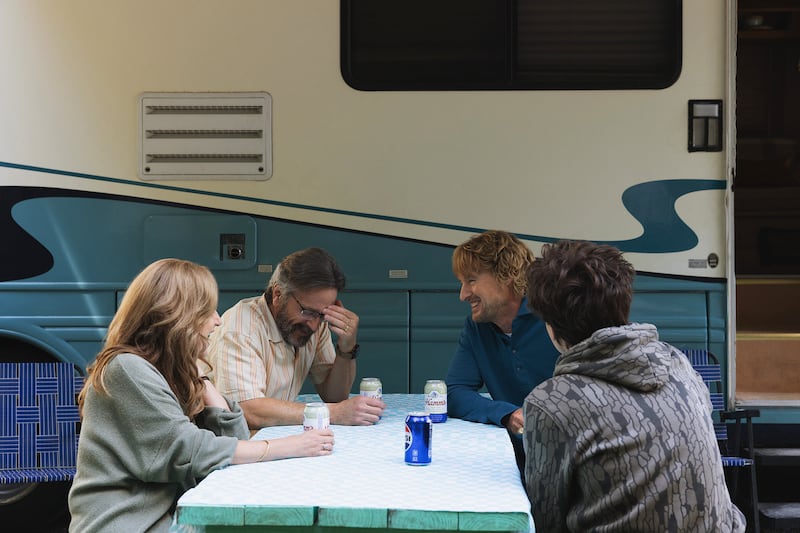
Treviño shared that while most of the switching back and forth between languages was scripted, “there were moments that we suddenly said little words that were really touching and were full of this mother tongue profundity.” In particular, “there was a moment where Peter, out of the blue, called me Mami. It’s so simple, but at the moment he said it” she felt the word and the warmth behind it “bring out so much emotion and connection” to their shared roots as Latino actors.
In thinking about what the Wheelers have lost, Treviño describes the mother and son as initially “trying to hold onto what’s left of their household” following Elena’s divorce from Santi’s father. She continues, “they’re trying not to move too much, because there’s so much hurt and grief. They’re trying to be still so everything doesn’t crash down, shattering the rest of what’s left” of their family unit.
Golf is a particularly fraught subject for them because it’s so wrapped up in Santi’s estrangement from his father, whose intensely demanding coaching style prompted Santi to quit playing. Three years later, returning to golf—gingerly at first, then going for broke—unlocks possibilities for both mother and son that neither of them expected.
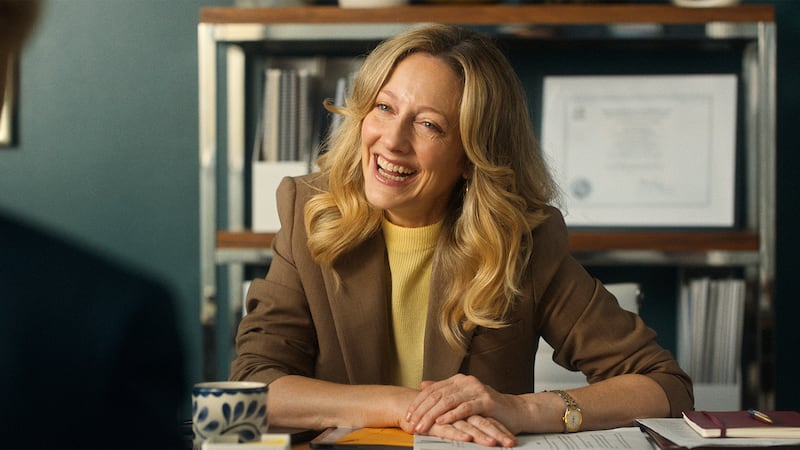
Out of the entire ensemble, a sort of ragtag, quippy Fellowship of the Golf Clubs, Elena is the character most enthusiastic about the possibilities that lie before them on the open road. The $100,000 Pryce forks over as a condition of their agreement to crisscross the country so Santi can play in golf tournaments and qualify to go professional doesn’t hurt, either.
Between her nascent business idea—to leverage the national shortage of helium for profit—and the hope of Santi reintegrating the joy of golf back into his life after a painful hiatus, she sees long-term possibilities everywhere she looks. Elena’s impulsive agreement to Pryce’s plan comes with risks, but Treviño interprets it as essential “because Elena sees what condition her son is in and she really wants something to change.”
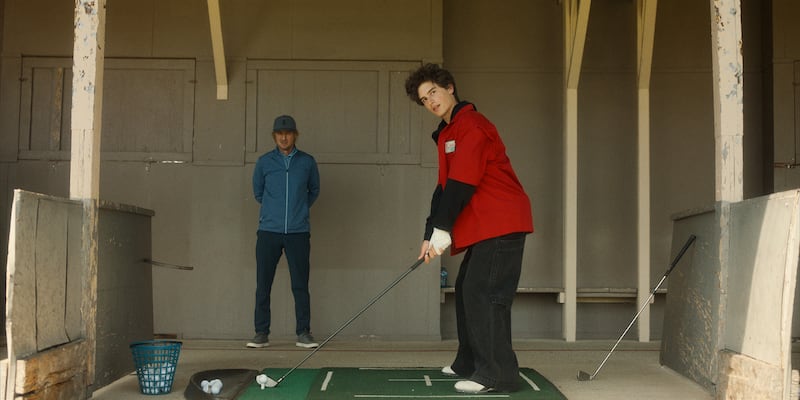
Santi’s journey with golf and grief is fraught in its own way. After Pryce’s expectations and occasionally too-demanding coaching style overwhelm him with memories of his father’s off-putting behavior, Santi stomps off to a storage shed. Lilli Kay’s Zero, having abruptly quit a job as a bartender at the golf club after enduring one too many sexist, lecherous comments from a table full of golf bros, has taken refuge there, too.
Something in each of them softens at first sight, an experience Kay describes in lightly mystical terms as Zero and Santi “intersecting in this moment where they really can’t help but be honest with each other.”
In Santi, Zero (who is gender nonconforming and uses they/them pronouns), “just sees a good soul, someone who seems kind and who they relate to.” Their instant bond leads Zero to decide, as Kay puts it, that “I’m gonna ride for you on this because you seem like a special person.” Dager eagerly agrees, saying “there’s goodness coming from Zero the moment we meet” and their encouragement to Santi not to “let these people use you, because [your athletic abilities] are your gifts.”
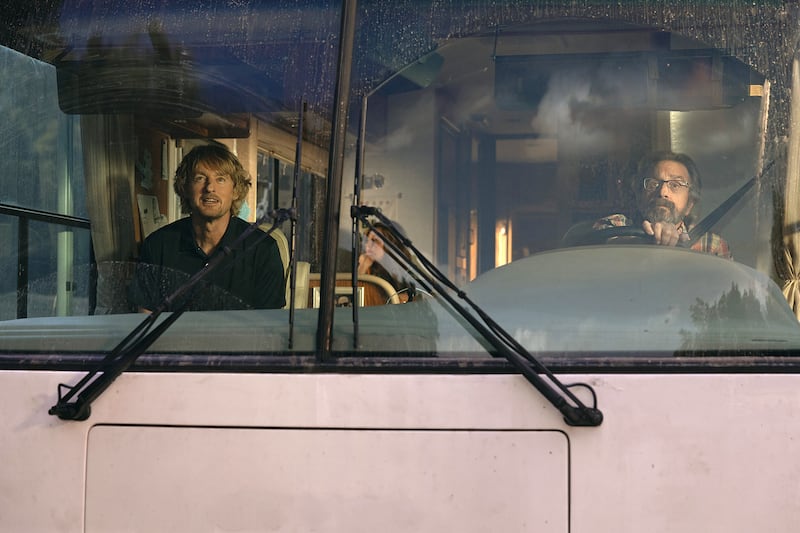
Both actors highlight an appreciation for how Stick’s deep intertwining of golf with vulnerability and resilience resonate with the connections between characters in pairings ranging from romance, to platonic friendship, to coach and athlete. The tension between loving golf and having been hurt by it drives nearly everything between Santi and Pryce. As Dager puts it, initially, “the game is really what binds them together, and of course it also catapults them into and triggers all the complicated emotions” and experiences that playing golf both gave and took from them.
In order to access and develop the working and personal relationships Santi and Pryce want together, each of them has to start resolving the tension they experience between their love for golf and how powerfully it reminds them of past hurts. It’s a hard journey to make, but Dager points out that across all character pairings on the show, the most substantive connections between characters happens “when they become open and start to talk about the grief and loss” they’ve experienced.
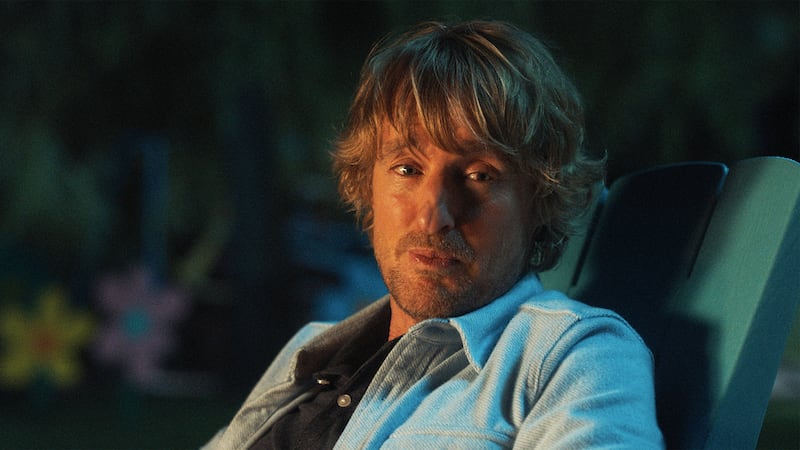
That vulnerability, what Kay describes as the scariness of finding that the risk of “learning to be a little bit softer” with each other is worth its rewards, is crucial to Santi and Pryce both getting back to the place emotionally where they can re-access what they love about golf.
Dager, who didn’t play or even follow golf before Stick, still plays, relishing its unique combination of intellectualism, accountability, and physicality. Dager loves that it’s “primal and gut-wrenching, and you have to work on the mental side of it” all the time, pointing out that “it’s even more challenging than tennis in establishing dominance, because success is so fleeting”.
Keller concurs about golf’s “incredibly singular” nature, and thinks it relates to grief in another way, presenting an opportunity as well as a challenge. When, as a golfer, “you hit a terrible shot, and if, in the next shot, you are still wrapped up with the grief of the previous shot” the weight of that failure gets in the way of improving with the next shot. Instead, “you can learn from your previous bad shot” and adjust accordingly, treating the experience as a re-centering practice for managing heavier losses off the course.
That practice will no doubt come in handy if Stick is renewed for a second season. Greer shared that in a fanciful chat with Owen Wilson, she “got really excited at the idea that maybe Amber-Linn turns out to be a really good golfer.” Fore!









